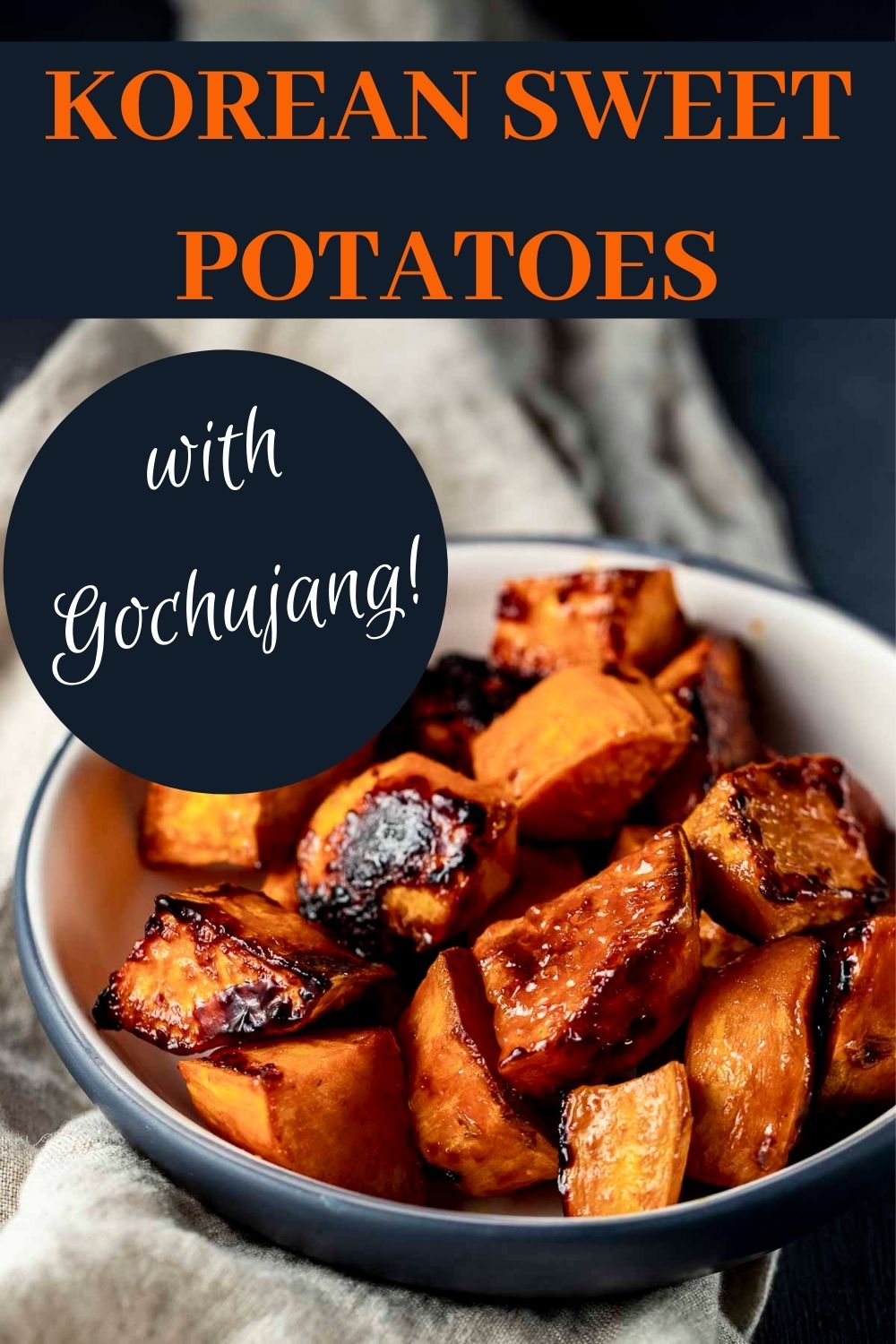Korean Sweet Potato Calories: A Sweet And Healthy Treat To Fuel Your Day
Ever wondered how many calories are in that delicious Korean sweet potato you've been craving? Well, let's dive right into the sweet details! Korean sweet potato, also known as purple sweet potato or goguma, has been making waves as a superfood in recent years. It's not just a tasty snack; it's packed with nutrients that can boost your health. So, if you're curious about the calorie count and the benefits of this delightful tuber, you're in the right place.
You might be thinking, "Is this sweet potato really worth the calories?" The answer is a resounding yes! Korean sweet potatoes are not only rich in flavor but also in essential vitamins and minerals. They are a great source of energy and can be a part of a balanced diet. Whether you're snacking or incorporating them into your meals, these spuds have got your back.
But hold up! Before we get too deep into the sweet potato game, let's break down the basics. Understanding the calorie content and nutritional value of Korean sweet potatoes is key to making informed food choices. So, grab a snack (maybe a sweet potato!) and let's explore everything you need to know about this amazing tuber.
Read also:Biggby Buy One Get One Free Coupons Your Ultimate Guide To Saving Big
Understanding the Korean Sweet Potato
First things first, what exactly is a Korean sweet potato? Also known as goguma in Korea, this vibrant purple or orange-fleshed root vegetable has been a staple in Asian cuisine for centuries. It's not just any old sweet potato; it's got a unique flavor profile that's slightly sweeter and more nutty than its Western counterparts.
Where It Comes From
Originating from Southeast Asia, Korean sweet potatoes have found their way into kitchens all over the world. They're grown in various regions, but Korea has truly mastered the art of cultivating this tuber. The soil and climate conditions in Korea give these sweet potatoes their distinct taste and texture.
What Makes It Unique
So, what sets Korean sweet potatoes apart from regular sweet potatoes? For starters, the vibrant purple flesh variety is rich in anthocyanins, powerful antioxidants that give it its striking color. Plus, the texture is often described as creamier and denser, making it a favorite for both savory and sweet dishes.
Korean Sweet Potato Calories: The Breakdown
Alright, let's talk numbers. If you're calorie-conscious, you'll be pleased to know that Korean sweet potatoes are relatively low in calories compared to other snacks. A medium-sized Korean sweet potato (approximately 100 grams) contains around 120 calories. Not bad for a snack that's packed with nutrients!
Calorie Comparison
Here's a quick comparison to give you some perspective:
- Korean Sweet Potato: ~120 calories per 100g
- Regular Potato: ~87 calories per 100g
- Banana: ~89 calories per 100g
As you can see, Korean sweet potatoes are a bit higher in calories than regular potatoes, but they offer more nutritional benefits. Plus, they're way more delicious!
Read also:Blue Note Lounge Photos Your Ultimate Guide To Jazz Vibes And Stunning Captures
Nutritional Value of Korean Sweet Potatoes
Beyond the calorie count, Korean sweet potatoes are a nutritional powerhouse. They're loaded with vitamins, minerals, and antioxidants that can support your overall health. Here's a quick rundown of what you can expect:
Vitamins and Minerals
Korean sweet potatoes are rich in:
- Vitamin A: Essential for eye health
- Vitamin C: Boosts your immune system
- Potassium: Helps regulate blood pressure
- Fiber: Promotes healthy digestion
Antioxidants
The purple-fleshed varieties are particularly high in anthocyanins, which have been linked to reducing inflammation and improving heart health. These antioxidants are what give the sweet potato its vibrant color and superfood status.
Health Benefits of Korean Sweet Potatoes
Now that we've covered the basics, let's talk about the health benefits. Korean sweet potatoes aren't just a tasty treat; they can also contribute to a healthier you. Here are some of the top benefits:
Boosts Immunity
With their high vitamin C content, Korean sweet potatoes can help strengthen your immune system. This means fewer sick days and more time to enjoy life!
Supports Digestive Health
The fiber in Korean sweet potatoes promotes healthy digestion and can help prevent constipation. Plus, it keeps you feeling full longer, which is great for weight management.
Improves Heart Health
The potassium in Korean sweet potatoes helps regulate blood pressure, reducing the risk of heart disease. And those anthocyanins? They're great for your ticker too!
How to Incorporate Korean Sweet Potatoes into Your Diet
Ready to add Korean sweet potatoes to your meals? There are endless ways to enjoy this versatile tuber. Here are a few ideas to get you started:
Snack Time
Baked or roasted Korean sweet potatoes make for a delicious and healthy snack. Simply slice them into wedges, toss with a bit of olive oil and seasoning, and pop them in the oven. Voilà! A guilt-free treat that's both sweet and satisfying.
Meal Prep
Use Korean sweet potatoes as a base for your meals. They pair perfectly with a variety of proteins and veggies. Try mashing them, grilling them, or even adding them to soups and stews for a hearty, nutritious meal.
Dessert Delights
Who says dessert can't be healthy? Korean sweet potatoes can be used in a variety of sweet treats, from pies to smoothies. Get creative and experiment with different recipes to satisfy your sweet tooth.
Calorie Counting Tips
If you're keeping an eye on your calorie intake, here are a few tips to help you enjoy Korean sweet potatoes without going overboard:
Portion Control
Stick to a reasonable portion size. A medium-sized sweet potato is usually enough to satisfy your hunger without adding too many extra calories to your day.
Pair with Lean Proteins
Balance out your meal by pairing Korean sweet potatoes with lean proteins like chicken or tofu. This will help keep you full and provide a balanced nutrient profile.
Watch the Add-ons
While Korean sweet potatoes are naturally low in calories, be mindful of what you add to them. Toppings like butter or sugar can quickly increase the calorie count. Opt for healthier alternatives like herbs and spices instead.
Common Myths About Korean Sweet Potatoes
There are a few misconceptions floating around about Korean sweet potatoes. Let's clear them up:
Myth: They're High in Sugar
Fact: While they do contain natural sugars, Korean sweet potatoes are actually lower on the glycemic index than regular potatoes. This means they won't cause a rapid spike in blood sugar levels.
Myth: They're Just a Fad
Fact: Korean sweet potatoes have been a staple in many cultures for centuries. Their recent popularity is due to increased awareness of their nutritional benefits.
Korean Sweet Potato Calories vs. Regular Sweet Potatoes
Let's take a closer look at how Korean sweet potatoes stack up against regular sweet potatoes in terms of calories and nutrition:
Calorie Content
As mentioned earlier, Korean sweet potatoes have a slightly higher calorie count than regular sweet potatoes. However, they offer more nutritional benefits, making them a worthwhile choice.
Nutritional Comparison
Both types of sweet potatoes are rich in vitamins and minerals, but Korean sweet potatoes have the added bonus of anthocyanins, which give them their purple color and superfood status.
Conclusion: Enjoy the Sweetness, Stay Healthy
In conclusion, Korean sweet potatoes are a delicious and nutritious addition to your diet. With their moderate calorie count and impressive nutritional profile, they're a great choice for anyone looking to eat healthier. Whether you're snacking, meal prepping, or indulging in a sweet treat, Korean sweet potatoes have got you covered.
So, what are you waiting for? Head to your local market and grab some Korean sweet potatoes today. And don't forget to share this article with your friends and family. Let's spread the word about this amazing tuber and all the goodness it has to offer!
Feel free to leave a comment below and let us know how you like to enjoy your Korean sweet potatoes. We'd love to hear from you!
Table of Contents
- Understanding the Korean Sweet Potato
- Korean Sweet Potato Calories: The Breakdown
- Nutritional Value of Korean Sweet Potatoes
- Health Benefits of Korean Sweet Potatoes
- How to Incorporate Korean Sweet Potatoes into Your Diet
- Calorie Counting Tips
- Common Myths About Korean Sweet Potatoes
- Korean Sweet Potato Calories vs. Regular Sweet Potatoes
- Conclusion: Enjoy the Sweetness, Stay Healthy
Article Recommendations


